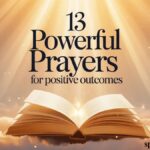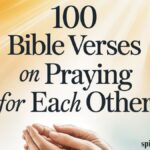How to Study the Bible for Beginners is the process of learning to read, interpret, and apply Scripture in a structured and meaningful way. It involves more than simply reading passages; it includes understanding the historical and cultural context, identifying key themes and words, reflecting on God’s message, and integrating those lessons into daily life. This practice equips beginners to develop a personal connection with God, grow in faith, and cultivate spiritual maturity over time.
Diving into Bible study can open a world of discovery, inspiration, and transformation. Imagine unlocking timeless wisdom that speaks directly into your life, offering guidance, encouragement, and clarity in the midst of life’s challenges. Each verse becomes a stepping stone toward understanding God’s character and experiencing His presence in practical, everyday ways.
Learning how to study the Bible for beginners provides a roadmap for spiritual growth. By combining prayer, observation, reflection, and application, beginners can transform Scripture from words on a page into a living, guiding force in their lives, empowering them to live with purpose, faith, and obedience.
Read More:spiritualreflect.com
Why Studying the Bible Matters
The Bible is not just a book; it’s a conversation with God, a source of wisdom, guidance, and spiritual transformation. Hebrews 4:12 reminds us that “the word of God is alive and active.”
For beginners, the main challenges include:
- Not knowing where to start reading
- Struggling to understand difficult passages
- Difficulty applying Scripture to daily life
A structured approach makes Bible study manageable, meaningful, and transformational.
Choose the Right Bible and Study Tools
Pick a Bible Translation That Fits Your Reading Style
Choosing the right Bible is critical for understanding Scripture. Some translations are easier for beginners:
| Translation | Reading Level | Best Use |
|---|---|---|
| NIV (New International Version) | Moderate | Clear, widely used |
| ESV (English Standard Version) | Moderate-High | More literal, ideal for study |
| NLT (New Living Translation) | Easy | Conversational, great for beginners |
| CSB (Christian Standard Bible) | Moderate | Balances readability and accuracy |
The goal is clarity—avoid getting stuck on complicated words.
Essential Study Tools
A beginner should gather a few key resources:
- Study Bible – Offers context, commentary, and explanations.
- Notebook or Prayer Journal – Record reflections, prayers, and insights.
- Commentary – Helps clarify challenging passages.
- Bible Reading Plan – Maintains consistency and direction.
- Optional Tools: Highlighters, sticky tabs, Bible apps like YouVersion or Blue Letter Bible.
These tools help you study Scripture with purpose and structure.
Prepare Your Heart and Mind Through Prayer
Before reading, prepare your heart. Prayer invites the Holy Spirit to guide your understanding. Even a brief prayer can set the tone:
“Lord, open my mind and heart to understand Your Word, and help me apply it in my life.”
Prayer centers your mind, fosters humility, and encourages reflection. It’s not just a ritual; it’s a spiritual discipline that strengthens your study.
Read Scripture Slowly and Intentionally
Beginners often rush through reading. Instead:
- Take your time
- Focus on keywords and repeated phrases
- Ask guiding questions: Who is speaking? Who is the audience? What is the main message?
Example: John 1:1-5 contains words like Word, light, and life. Reflect on how these highlight Jesus’ identity and mission.
Tips for effective reading:
- Read a small passage daily
- Reread difficult verses
- Write down first impressions before consulting commentaries
Understand Context Before Drawing Conclusions
Historical and Cultural Context
Knowing when, why, and to whom a passage was written prevents misunderstanding. For example:
- Paul wrote letters addressing specific church challenges
- Psalms reflect Hebrew poetry, symbolism, and worship culture
Literary Context
Different genres require different approaches:
| Genre | How to Read | Example |
|---|---|---|
| Narrative | Focus on events and characters | Genesis 1–3 |
| Poetry | Focus on imagery and emotion | Psalms |
| Prophecy | Understand symbolism and fulfillment | Isaiah 53 |
| Letters | Observe instructions and encouragement | Romans 12 |
Understanding literary style enhances clarity and accuracy.
Use Cross-References to Deepen Understanding
The Bible often explains itself. Cross-references connect similar passages, clarifying meaning:
- Ephesians 2:8-9 ↔ James 2:17: Balances faith and works
- Matthew 5:44 ↔ Luke 6:27-28: Reinforces love and forgiveness
Use margins, study Bibles, or apps to easily track related verses.
Reflect and Take Notes
Reflection transforms reading into understanding and application. A journal helps track insights:
| Passage | Observation | Lesson | Application |
|---|---|---|---|
| John 3:16 | God’s love reaches everyone | God desires faith and relationship | Share faith with others |
| Psalm 23 | God is our shepherd | Trust and guidance | Pray for direction in daily life |
Journaling strengthens memory, clarifies thoughts, and encourages spiritual growth.
Apply What You Learn
Knowledge without action is incomplete. Scripture calls for application:
- Identify actionable steps
- Integrate lessons into relationships, choices, and habits
- Practice obedience and repentance to experience transformation
Case Study:
A beginner studying Matthew 6:33 (“Seek first the kingdom of God…”) started praying 10 minutes before work daily. Over weeks, decision-making became calmer, and life felt more purpose-driven.
Stay Consistent and Build a Habit
Consistency is essential. Beginners often quit due to busyness. Simple strategies:
- Set a fixed time and place
- Start small (5–10 minutes)
- Use alarms or reminders
- Join a Bible study group for accountability
Example Routine:
| Day | Passage | Method | Reflection |
|---|---|---|---|
| Monday | Genesis 1:1-5 | Read + Notes | God’s creation |
| Tuesday | Psalm 1 | SOAP Method | Delight in God’s Word |
| Wednesday | John 3:16 | Cross-reference | God’s love in action |
Small daily steps yield long-term growth.
Simple Bible Study Methods for Beginners
SOAP Method
- Scripture: Read carefully
- Observation: Note what stands out
- Application: How to live it out
- Prayer: Respond to God
Inductive Bible Study
- Observation → Interpretation → Application
- Encourages critical thinking and spiritual reflection
Verse Mapping
- Break the verses down word by word
- Study meanings, cross-references, and original language
These methods help beginners develop personal Bible study habits.
Conclusion
Learning how to study the Bible for beginners is the first step toward a deeper relationship with God. It is about more than reading; it is about understanding, reflecting, and applying Scripture in everyday life. By using tools like a study Bible, a journal, and reading plans, beginners can explore God’s Word with clarity and purpose. Consistency and prayer guide the process, helping readers grow spiritually and gain wisdom from each passage.
Following a clear approach to how to study the Bible for beginners transforms Scripture into a practical guide for life. Each verse offers insight, encouragement, and direction. Small daily habits, reflection, and obedience turn learning into action. With patience and dedication, beginners can discover God’s character, strengthen their faith, and experience the life-changing power of His Word.
FAQs
Q1: What is a good place to start when learning how to study the Bible for beginners?
A: A strong starting point is one of the Gospels (Matthew, Mark, Luke, or John) because they clearly present Jesus’ life and teachings.
Q2: How often should a beginner engage in Bible study?
A: Consistency beats quantity—just 10‑15 minutes daily is far more effective than long sessions sporadically.
Q3: Do I need extra tools to study the Bible effectively?
A: No—at minimum you need a Bible and a notebook/journal; study Bibles, commentaries, and apps add helpful depth but are optional.
Q4: What method works best for beginners learning how to study the Bible?
A: Methods like SOAP (Scripture‑Observation‑Application‑Prayer) or the “5Ws & H” (Who, What, When, Where, Why, How) help beginners engage the passage meaningfully.
Q5: How do I apply what I learn when studying Scripture?
A: Ask: “What does this teach me about God? What does it teach me about myself? What will I do differently?” Then write down one practical step.

Rana Ahmad is the creator of Spiritual Reflect, where she shares insights on personal growth, mindfulness, and meaningful living to inspire a more intentional life.







